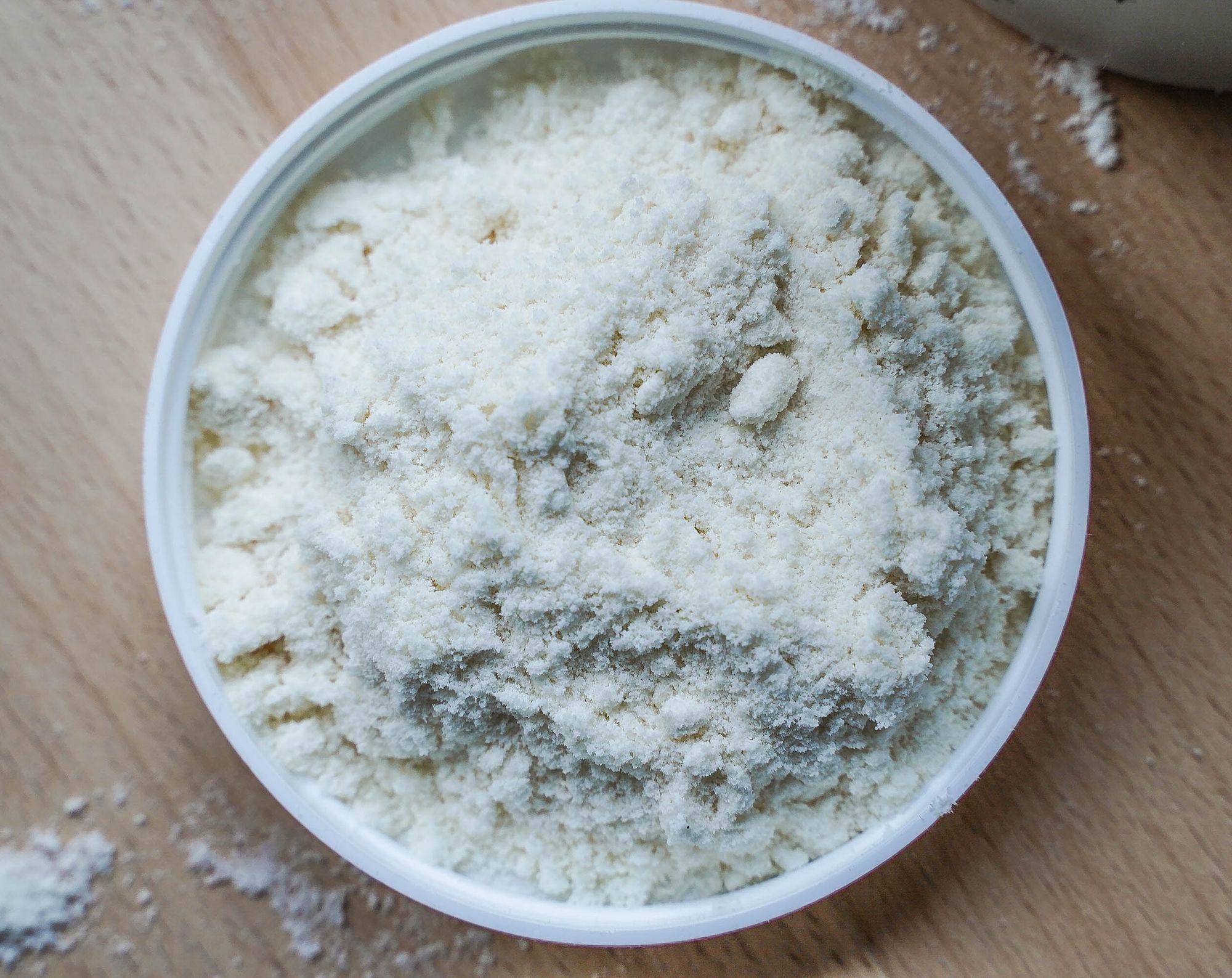Best collagen for wrinkles: supporting skin hydration, firmness & elasticity in women


Best collagen for wrinkles: supporting skin hydration, firmness & elasticity in women
The skin is the largest and most exposed organ of the body. Many factors like UV rays from sun exposure, seasonal changes, diet and stress can impact the levels of natural collagen in your skin.
Dry, weathered skin, wrinkles, and acne impact our confidence and how we show up each day. So, what’s the secret to feeling good? Looking refreshed at any age is more than just what you put on your skin topically, but how you nourish it internally!
Collagen is a food-based supplement that can support skin structure, integrity, firmness, hydration, elasticity and, over time, improve the appearance of fine lines and wrinkles (1) and helps you retain that fountain of youth.
Factors that affect your skin
Before we dive into some options of collagen supplements for wrinkles and its other associated benefits, let’s take a look at some of the factors that can take a massive toll on your skin.
Seasonal changes
Take for example humidity and cold air - they can batter your skin during the winter and cause it to lose moisture and elasticity. During summer, overexposure to the sun’s UV rays not only causes sunburn but also premature aging, dark spots, and a weakened immune system (2). Which is why it’s important to strengthen the skin’s integrity and structure during these seasons as well as their transitions.
Age
Age plays a huge role in your skin’s elasticity and integrity. This is because with age your body produces less collagen, a type of protein that is needed to keep skin strong and firm. Which is why as you age and produce less collagen, your skin can benefit from collagen supplements to support and maintain its elasticity and integrity.
Lifestyle
An unhealthy lifestyle affects the appearance of your skin. Performing regular exercise can promote anti ageing benefits. Eating food high in collagen can improve blood circulation, which then improves the delivery of oxygen and nutrient supply to the skin. Coupled with collagen products, you can expect better support for skin hydration and firmness.
The best collagen for wrinkles

Wrinkles occur when the skin cells thins out at the areas that see regular use, including the eyes and mouth of the (3). Following this, we need to look into collagen supplements for boosting collagen supply that can help support your skins elasticity and integrity.
Where does collagen come from?
Now that we understand what the benefits of collagen are and how it affects the skin and how supplements can help, where exactly do you get the best collagen for wrinkles? Collagen is a protein that is found in all vertebrates (4). It is commonly derived from cow or hog parts (1). But it can also come from marine sources.
Collagen products and supplements from marine sources are preferable for a couple of reasons. First, there is less of a chance of animal-borne infections compared to other sources (9). It also has the smallest molecular weight of other collagen alternatives, allowing it to pass through the intestinal wall and into the bloodstream more rapidly and effectively. This absorption has been proven to be 1.5 times more efficient than bovine or porcine collagen (10). Other than that, marine collagen provides a way to make use of the majority of the fish, including skins, bones, fins, and scales, which would otherwise be thrown away (7). The best collagen for wrinkles is one derived from safer and sustainable marine sources.
However, if you have an egg, fish, or shellfish allergy, it is critical to ensure that your collagen is not sourced from these to prevent any triggers of potential allergy and side effects.
Types of collagen
There are actually nearly 28 different kinds of collagen (so far!) (5). But the majority of the collagen in the body is made up of Types I, II, and III (6). And of these, Type I and III are considered the main forms of collagen in the skin (7).
Collagen Type I is in the bones and teeth, tendons and ligaments, and of course, the skin. Type II is mostly found in cartilages. Type III is found in muscles, blood vessels, and also elastic parts of the skin, where it is associated with collagen Type I (5, 7).
Studies have shown collagen supplements help in lessening wrinkles, and improving skin density, integrity and elasticity (1).
Why you should use Type I collagen for wrinkles

Studies of collagen Type I, in particular, have found that it results in smoother and more pliable skin, and less wrinkles (7, 8). It is commonly sourced from cows but can also come from eggshell membranes, hogs, fish and other sources. It can decrease fine lines and wrinkles, improve skin elasticity and firmness, as well as provide sufficient hydration in women.
Vitable’s collagen supplement uses the Type 1 variation which can help provide a wide range of benefits for your skin. Here’s a quick summary of what you can expect with our collagen supplement:
- Maintains and supports skin integrity and structure
- Maintains and supports skin firmness
- Maintains and supports skin hydration
- Maintains and supports skin elasticity
- Decreases fine lines and wrinkles
- Improves skin elasticity and integrity
So there you have it! Level up your skincare regimen by adding a collagen supplement to your routine. Pair these collagen supplements with a healthy diet and you’ll be well on your way to feeling your best.
Psst. Want in on another secret? There's a super easy way of getting your personalised vitamin packs in Australia. We're talking about creating your very own custom vitamins for daily use. Vitable is synonymous with personalised vitamins made for those who want to feel and live better by pairing supplements with a healthy lifestyle. Mix and match your preferred supplements and that's how you get your very own vitamin subscription in Australia!
Learn about other areas that collagen can help you with, plus other supplements that can benefit in different ways:
Collagen | Zinc | Iron | Astaxanthin | B complex | Vitamin C | Cranberry | Biotin
*Always read the label. Follow the directions for use. If symptoms persist, talk to your health professional. Vitamin and/or mineral supplements should not replace a balanced diet.
References:
1. Bolke, L., Schlippe, G., et al. “A Collagen Supplement Improves Skin Hydration, Elasticity, Roughness, and Density: Results of a Randomized, Placebo-Controlled, Blind Study”. National Library of Medicine: National Center for Biotechnology Information. Published October 17, 2019 on https://www.ncbi.nlm.nih.gov/pmc/articles/PMC6835901/ . Accessed July 29, 2021
2. The American Cancer Society Medical and Editorial Content Team. “Ultraviolet (UV) Radiation”. American Cancer Society: Cancer.Org. Published Jul. 10, 2019 on https://www.cancer.org/cancer/cancer-causes/radiation-exposure/uv-radiation.html. Accessed July 18, 2021
3. Better Health Channel. “Healthy ageing - the skin”. Better Health Channel. Last reviewed April 17, 2018 on https://www.betterhealth.vic.gov.au/health/conditionsandtreatments/healthy-ageing-the-skin . Accessed on July 29, 2021
4. Makareeva, E., Leikin, S. “Chapter 7 - Collagen Structure, Folding and Function”. Osteogenesis Imperfecta: Academic Press. Published 2014. Accessed at https://www.sciencedirect.com/science/article/pii/B9780123971654000071on July 29, 2021.
5. Leon-Lopez, A., Morales-Penaloza, A., Martines-Juarez, V., et al. “Hydrolyzed Collagen—Sources and Applications”. National Library of Medicine: National Center for Biotechnology Information. Published November 6, 2019 on https://www.ncbi.nlm.nih.gov/pmc/articles/PMC6891674/ . Accessed July 29, 2021
6. Lodish, H., Berk. A., Zipursky, S., et al. “Section 22.3 Collagen: The Fibrous Proteins of the Matrix”. Molecular Cell Biology, 4th edition: W.H. Freeman and Company. Published 2000. Accessed at https://www.ncbi.nlm.nih.gov/books/NBK21582/ on July 29, 2021.
7. Silva, T., Moreira-Silva, J., Marques, A., et al. “Marine Origin Collagens and Its Potential Applications”. National Library of Medicine: National Center for Biotechnology Information. Published December 5, 2014 on https://www.ncbi.nlm.nih.gov/pmc/articles/PMC4278207/ . Accessed July 29, 2021
8. Vollmer, D., West, V., Lephart, E. “Enhancing Skin Health: By Oral Administration of Natural Compounds and Minerals with Implications to the Dermal Microbiome”. National Library of Medicine: National Center for Biotechnology Information. Published October 7, 2018 on https://www.ncbi.nlm.nih.gov/pmc/articles/PMC6213755/ . Accessed July 29, 2021
9. Borumand, M., Sibilla, S. “Daily consumption of the collagen supplement Pure Gold Collagen® reduces visible signs of aging”. National Library of Medicine: National Center for Biotechnology Information. Published October 13, 2014 on https://www.ncbi.nlm.nih.gov/pmc/articles/PMC4206255/ . Accessed July 29, 2021
10. Daniela Coppola, et. al. “Marine Collagen from Alternative and Sustainable Sources: Extraction, Processing and Applications.” National Library of Medicine: National Center for Biotechnology Information. Published April 18, 2020 on https://www.ncbi.nlm.nih.gov/pmc/articles/PMC7230273/ . Accessed August 3, 2021.
11. David L Vollmer, et al. “Enhancing Skin Health: By Oral Administration of Natural Compounds and Minerals with Implications to the Dermal Microbiome.” National Library of Medicine: National Center for Biotechnology Information. Published April 18, 2020 on October 19, 2013 on https://www.ncbi.nlm.nih.gov/pmc/articles/PMC6213755/ . Accessed August 3, 2021.
